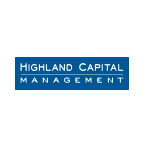
FMP

Highland Funds I - Highland Income Fund
HFRO
NYSE
Highland Funds I - Highland Floating Rate Opportunities Fund is a close-ended fixed income mutual fund launched by Highland Capital Management, L.P. It is managed by Highland Capital Management Fund Advisors, L.P. The fund invests in fixed income markets of countries across the globe. It primarily invests in floating rate loans and other securities deemed to be floating rate investments, with an emphasis on adjustable rate senior loans to corporations and partnerships. The fund seeks to invest in below investment grade securities. It also invests through derivatives. The fund benchmarks the performance of its portfolio against the Credit Suisse Leveraged Loan Index. It was formerly known as Pyxis Funds I - Pyxis Floating Rate Opportunities Fund. Highland Funds I - Highland Floating Rate Opportunities Fund was formed on January 13, 2000 and is domiciled in the United States.
5.29 USD
0.1 (1.89%)
DuPont Analysis
The DuPont analysis, pioneered by the DuPont Corporation, offers a structured approach to assessing fundamental performance. It involves breaking down the return on equity (ROE) into various components, aiding investors in comprehending the factors influencing a company's returns.
ROE = Net Income / Average Total Equity
ROE = (Net Income / Sales) * (Revenue / Average Total Assets) * (Average Total Assets / Average Total Equity)
The company's tax burden is (Net income ÷ Pretax profit). This is the proportion of the company's profits retained after paying income taxes. [NI/EBT] The company's interest burden is (Pretax income ÷ EBIT). This will be 1.00 for a firm with no debt or financial leverage. [EBT/EBIT] The company's operating income margin or return on sales (ROS) is (EBIT ÷ Revenue). This is the operating income per dollar of sales. [EBIT/Revenue] The company's asset turnover (ATO) is (Revenue ÷ Average Total Assets). The company's equity multiplier is (Average Total Assets ÷ Average Total Equity). This is a measure of financial leverage. Profitability (measured by profit margin) Asset efficiency (measured by asset turnover) Financial leverage (measured by equity multiplier)